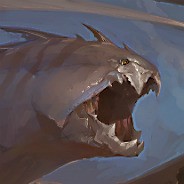Listen to the dialogue and answer the questions 1. Which programme is Steven going to watch tonight?
A) Try This B) Kick Start C) Explorer D) The News
2. Which programme did he want to watch?
A) Try This B) Kick Start C) Explorer D) The News
3. What was last week’s programme about?
A) Climbing B) Making kites
C) Snowboarding D) Project work
4. When does the programme begin? At … .
A) 7.15 p.m. B) 7.30 p.m. C) 7.45 p.m. D) 8.00 p.m.
5. How long does the programme last? About … .
A) 15 minutes B) 30 minutes C) 45 minutes D) an hour
6. Which project can the programme help with?
A) Art project B) Science project
C) Maths project D) Geography project
7. When must the project be ready? On … .
A) 5 March B) 13 March C) 15 March D) 28 March
8. What does the teacher want to do with the best
project?
A) Publish it in a newspaper B) Take it as a present
C) Display it to other pupils D) Put it on the shelf
9. Where does the teacher want to put the best work?
In the school … .
A) library B) hall C) computer room D) dining room
10. Which place does the boy like better? The … .
A) library B) hall C) computer room D) dining room
Read the text and find the correct answers
There is a large collection of tales written by the Greek
storyteller, Aesop. Little is known about his life. According to some historical facts, Aesop was a slave in ancient Greece. He was a keen observer of both animals
and people. But most of the characters in his stories are
animals, some of which take on human characteristics
and are personified in terms of speech and emotions.
It is also a bit of trickery on adults to use animals, because it allows adult readers to sort of “skip” imagining
themselves as the characters in the story. However, the
majority of his characters retain their animalistic qualities: tortoises are slow, hares are quick, tigers eat birds,
etc. Aesop uses these qualities and the natural tendencies of animals to focus on human traits and wisdom.
Aesop’s fables may be short, but they offer wise lessons
at the end. It is up to us to discover for ourselves what
is hidden behind the images presented by the author.
11. Which country is Aesop from?
A) Italy B) Spain C) Greek D) Greece
12. When did he live?
A) In the age of Enlightenment B) In antiquity
C) During the Renaissance D) In the middle ages
13. What does the term “keen observer” mean? An
observer who is … .
A) shrewd B) demanding C) careless D) hospitable
14. The main characters in his tales are mostly
animals, … ?
A) didn’t it B) didn’t they C) are they D) aren’t they
15. What unusual thing can the animals do in his tales?
A) Eat B) Jump C) Speak D) Smell
16. Why did Aesop prefer to depict animals instead of
people in his fables? Because he … .
A) loved animals
B) didn’t want to show who he really meant
C) didn’t respect people
D) hated people
17. What qualities do the animals in his tales still
preserve?
A) Human B) Animalistic C) Artistic D) Artificial
18. Who was Aesop according to some historical facts?
A) A slave B) A musician C) A priest D) A manager
19. What is usually written at the end of the fable?
A) A moral B) Wrongness C) An advert D) Annotation
20. What do Aesop’s fables make many people do?
A) Sing B) Dance C) Think D) Take care of animals
Select the correct answers to fill the gaps
- While I (21) television last night, I (22) an advertisement for a new theme park.
- Really? Tell me about it.
- It’s called The Haunted Garden and it has lots of
spooky rides. It’s in the grounds of a castle that (23)
built in the 16th century. The great thing about it is that it’s
open at night so you (24) on all the rides in the dark.
- That sounds really cool! I have never (25) on a rollercoaster in the dark before!
- Me neither. When my dad gets home I am going (26)
him if we can go there for my birthday.
- Good idea. I’ve forgotten – when is your birthday?
- It’s next month. The nineteenth.
- Oh no! I’ll be away on holiday. We (27) to Rome, but I
wish I (28) to your party.
- Never mind. Perhaps we (29) go to The Haunted Garden the following week, when you get back.
- Thanks, Joe. I (30) hate to miss it.
21. A) watch B) watches C) watched D) was watching
22. A) saw B) sees C) seen D) was seeing
23. A) was B) has been C) were D) had been
24. A) to go B) shall go C) can go D) have been
25. A) go B) been C) went D) was
26. A) asks B) to ask C) asked D) asking
27. A) go B) went C) have been D) are going
28. A) can go B) could go C) am going D) have went
29. A) won’t B) could C) need D) mustn’t
30. A) can B) won’t C) must D) would
Choose the place where we can find or use
these means of transport
A – In the air B – On the ground
C – On the sea D – Under the water
31. Helicopter
32. Hot air balloon
33. Van
34. Tram
35. Truck
36. Yacht
37. Submarine
38. Bathyscaphe найдите ответ умоляю очень надо
246
290
Ответы на вопрос:
Реши свою проблему, спроси otvet5GPT
-
Быстро
Мгновенный ответ на твой вопрос -
Точно
Бот обладает знаниями во всех сферах -
Бесплатно
Задай вопрос и получи ответ бесплатно

Популярно: Английский язык
-
Транcкрипция слов на языке but betsey isn*in can we make an omelette?...
 evelgren02.04.2020 06:05
evelgren02.04.2020 06:05 -
What can you do to protect the environment? here is a part a british...
 AlinaAok03.01.2023 02:01
AlinaAok03.01.2023 02:01 -
Test 1. have you found the book? she asked me. 2. how old are you? jane...
 Иванчик111102.03.2020 05:36
Иванчик111102.03.2020 05:36 -
Pam was siting in jenny s bedroom. jenny was getting ready for a date....
 metalnikovat24.07.2021 22:57
metalnikovat24.07.2021 22:57 -
Find the odd words. 1. what did were you doing at seven o clock yesterday...
 школоло87516.12.2020 17:14
школоло87516.12.2020 17:14 -
Расскажите про past simple present simple present континиус нет времени....
 DOGY22802.01.2020 15:12
DOGY22802.01.2020 15:12 -
Summative assessment for the unit Drama and comedy Task 1. Find the past...
 Nastya45t731.10.2020 06:03
Nastya45t731.10.2020 06:03 -
Task III. 1st, 2nd, 3rd Condition 1. If the students (not/be) late for...
 katiabrandt1714.10.2021 17:02
katiabrandt1714.10.2021 17:02 -
1 heavy/like/you / metal / Do Do you like heavy metal 2 the /do/at/do/What...
 bellason11.05.2021 18:55
bellason11.05.2021 18:55 -
Проект: Узнайте об интересном культурном событии в вашей стране. Сделайте...
 pro2289609.09.2020 05:47
pro2289609.09.2020 05:47

Есть вопросы?
-
Как otvet5GPT работает?
otvet5GPT использует большую языковую модель вместе с базой данных GPT для обеспечения высококачественных образовательных результатов. otvet5GPT действует как доступный академический ресурс вне класса. -
Сколько это стоит?
Проект находиться на стадии тестирования и все услуги бесплатны. -
Могу ли я использовать otvet5GPT в школе?
Конечно! Нейросеть может помочь вам делать конспекты лекций, придумывать идеи в классе и многое другое! -
В чем отличия от ChatGPT?
otvet5GPT черпает академические источники из собственной базы данных и предназначен специально для студентов. otvet5GPT также адаптируется к вашему стилю письма, предоставляя ряд образовательных инструментов, предназначенных для улучшения обучения.
